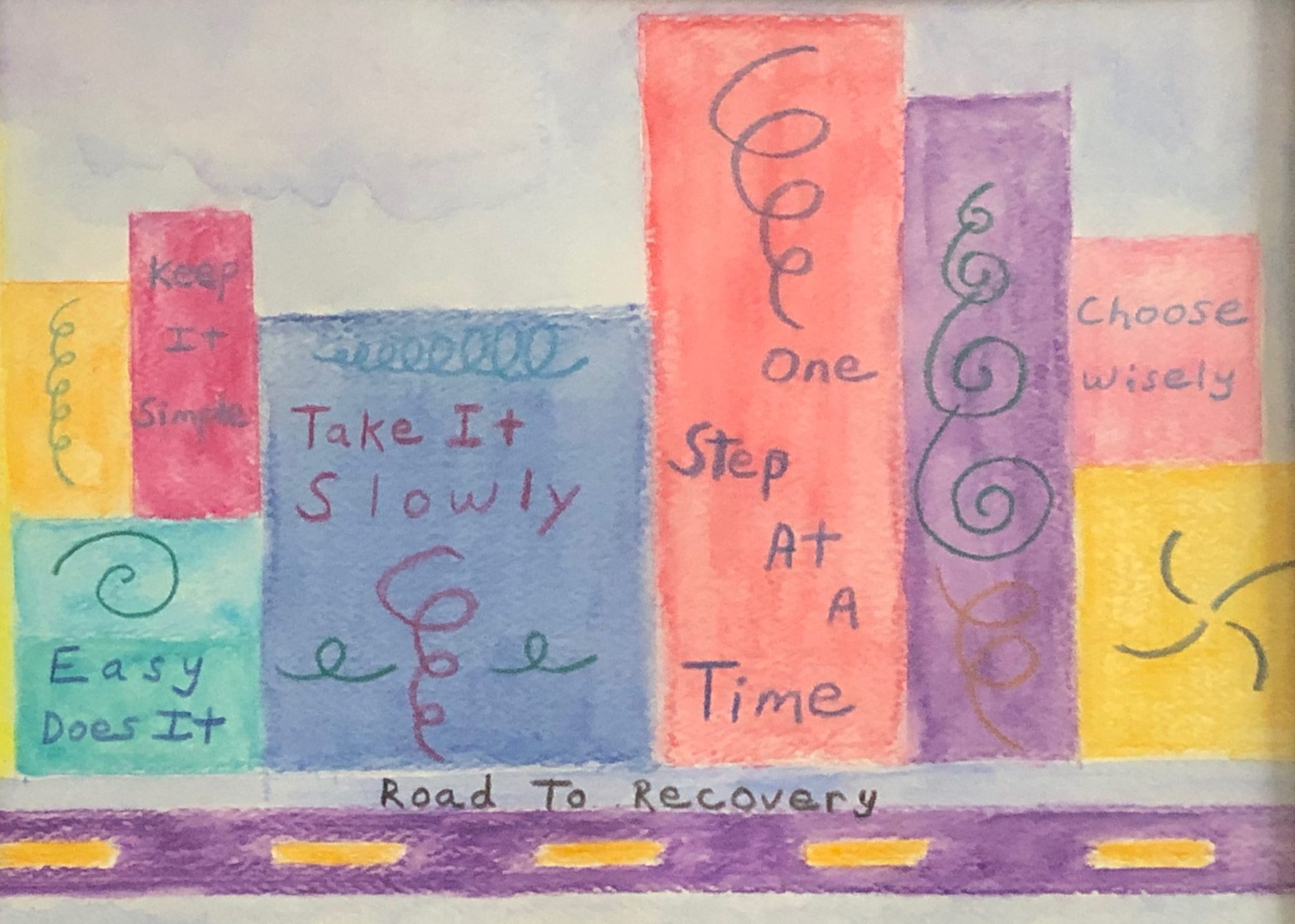 COPING THROUGH HARD TIMES
COPING THROUGH HARD TIMES
A Road To Recovery♫ begins with taking it…
“One Step at a Time, Easy Does It
One Step at a Time, Take It Slowly
One Step at a Time, Keep it Simple
One Step at a Time…”
We at Androscoggin Home Healthcare + Hospice recognize the challenges of dealing with the loss of a loved one, coping through serious illness or facing the hardships of life especially during a global pandemic. For this reason, we invite you to explore the information below in hopes to help you refuel, find balance and adjust your sails to Keep on Movin…♫
Below you will find a road map, with informational links, music and videos, chosen or crafted by our staff to bring you inspiration, hope and the courage to heal.
THINGS TO CONSIDER
- IDENTIFY YOUR STRENGTHS – accurately label and name your strengths, resiliency, what gives you a sense of purpose and Meaning In Life ♫. Remember that you have overcome many obstacles over the course of your lifetime – Wounds of the Warrior ♫. Think about how your strengths have helped to see you through – Stand By Me ♫. Think beyond this moment and how challenges help us to learn and grow.Strengths can be:
“inner” character traits – courage, curiosity, creativity, determination
“outer” those interpersonal connections we can lean on – friends, family, neighbors
“upper” these are strengths that are greater than ourselves – hope, faith, love, natureTo discover and define your strengths, go to www.viacharacter.org and take a strength based questionnaire.
- DON’T GO IT ALONE
Talk to someone. Balance alone time with connection to others. Share your experience, thoughts, feelings, and bring to words what is bothering you or what matters most. Involve the important people in your life in ways that they can support you. Tell them what is/is not helpful. Use your community, work supports, minister, physician and seek professional assistance or counseling as needed. Singer/songwriter Bill Withers, who died March 30th 2020 left us a remarkable legacy, he said it best in Lean on Me ♫.
- BE MINDFUL
Be careful about how much time you spend watching the news, re-exposing yourself to the trauma, or avoiding it altogether. Get the information you need but refrain from watching the same information over and over again. Recurring thoughts of a traumatic event are normal and will decrease over time. Allow yourself to have them, talk about them but don’t let them consume you. Journal, write meaning making stories, do meditation or visualization exercises, take a walk or do yoga – MOVE somehow. Use art or music to help express it or let it go.
- IDENTIFY YOUR TRIGGERS
Accurately label the event, experience, feelings, and possible triggers related to the traumatic event – they can come up when you least expect it. Our bodies are hard-wired and ready to react to preserve ourselves – the fight, flight, freeze response; we can feel overwhelmed, numb or shaken emotionally; or have a hard time thinking clearly – all normal responses to an abnormal situation. Engage your strengths to help see you through. Develop a practice of some of the suggestions here to help you shift the trigger response.
- TAKE CARE OF YOURSELF – Apply Oxygen Mask First Before Assisting Others
Move, eat well, rest and relax, avoid stimulants, alcohol, drugs, or overeating as coping mechanisms. Be kind & gentle with yourself – give yourself the gift of time to recover, take up activities that make you feel good. Avoid comparing yourself to others, everyone responds differently for different reasons. Quiet the “inner critic”. Have reasonable expectations and set attainable goals. Ask for help. Delegate tasks that feel overwhelming.
- RETURN TO ROUTINE
Seek out comfortable, familiar surroundings, routines that feel safe and that help you feel a sense of normalcy.
- AVOID BIG CHANGES & DECISIONS
Empower yourself to make as many daily decisions as possible that give you a feeling of control over your life but avoid making big life changes and decisions until you feel you are managing well and your mind is clear.
- HELP & LISTEN TO SOMEONE ELSE
Realize that you are not alone. Find ways to reach out and offer understanding and small acts of kindness.
Accept the things you cannot change and change the things you can!
Resources:
That Discomfort You’re Feeling is Grief
Brené on Comparative Suffering, the 50/50 Myth, and Settling the Ball
6 Foods That Trigger Anxiety and What to Eat Instead
Ensure proper hand washing techniques are used prior to practicing tapping!
Tapping 101 – What is Tapping and How Can I Start Using It?
Song, Make Me a Channel of Your Peace
I Will Remember You by Sarah McLachlan
Wind Beneath My Wings by Bette Midler
From A Distance by Bette Midler
How Great Thou Art by Katherine Jenkins

